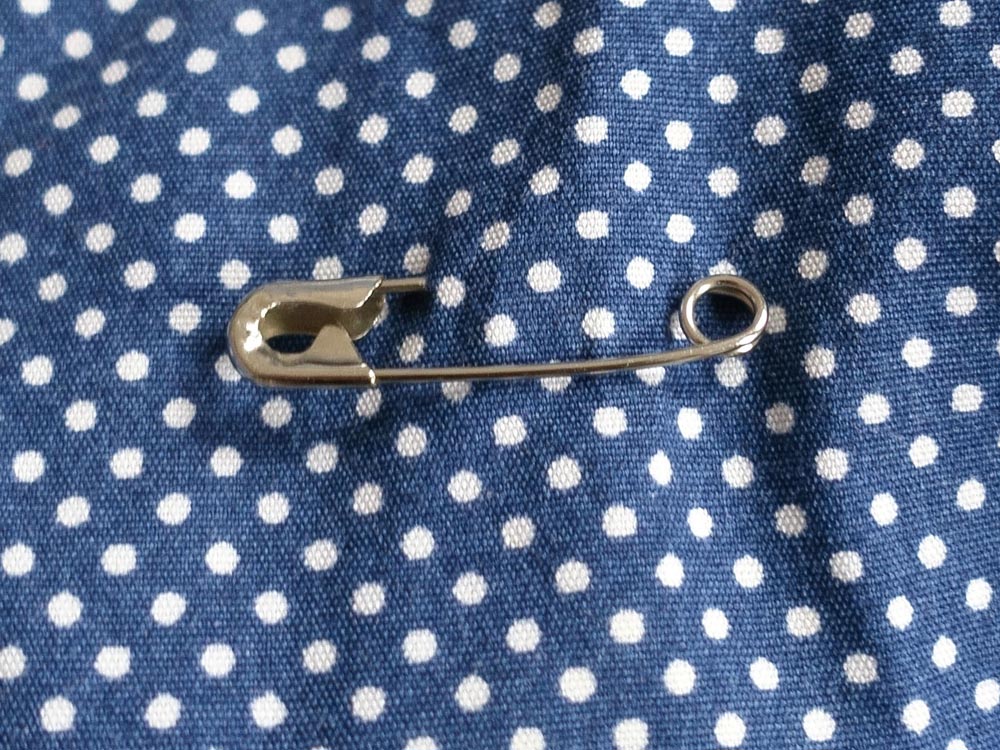Why you should think twice before wearing a safety pin today
Will wearing a safety pin really help?

Will wearing a safety pin really help?
As we all know the UK voted to leave the EU last week. Since that happened there's been a surge in racist abuse on the Britain's streets. Cards with the words "Go home Polish vermin" have been posted through the doors at the homes of UK based Poles, and just last week a video of a teenager shouting vile abuse at a man on a bus went viral. Suffice to say, it's a frightening time.
The safety pin campaign is an attempt to show solidarity with the UK's immigrant population. The idea is that wearing a safety pin you're shows your support and sympathy for people who might well be feeling vulnerable. There's no question that the initiative comes from a good place.
The founder of the campaign, who tweets as @Cheeah, told the BBC 'This is meant to be more than just a symbolic gesture or a way for like-minded people to pat each other on the back.If people wear the pin and support the campaign they are saying they are prepared to be part of the solution. It could be by confronting racist behaviour, or if that is not possible at least documenting it. More generally it is about reaching out to people and letting them know they are safe and welcome.' she says. But the reception to the campaign hasn't been wholly positive, with critics pointing out (fairly) that it's not really for people who run no risk of racial abuse to decide what will make people who are at risk feel safer.
Many have pointed out that wearing a safety pin is a small and easy step, with others calling it the visual equivalent of #NotAllWhitePeople
Poorna Bell, writing in the Huffington Post, explained why it will take a whole lot more than a safety pin to make her feel safe, writing: 'While I think it’s great - amazing, even - that people are protesting en masse against Brexit racism, and are saying it’s not okay, this isn’t how solidarity works. When I’m sitting on a train and I see your safety pin, I don’t think: “Hurrah, now I feel safe. My default expectation from you as a human being in society is to not be racist or call me a Paki on my morning commute. Wearing a safety pin just reminds me that I’m not safe, and telling me that you’re on ‘my side’ just reinforces the idea of sides.I don’t want sides. I want to go to work, do my job, go to the pub and not have to wear my race on my sleeve while doing it.'
There's no doubt that the safety pin campaign came from the best of intentions, and perhaps it does help anyone feel any safer, it's worth doing. But the truth is, wearing a pin on your top just isn't enough. It's up to all of us to fight against racism whenever and wherever we see it, even when it's disguised as a joke or brushed off as 'not a big deal'. Everyone in the UK has the right to feel safe, and it's all of our responsibility to make that happen.
Marie Claire Newsletter
Celebrity news, beauty, fashion advice, and fascinating features, delivered straight to your inbox!
The leading destination for fashion, beauty, shopping and finger-on-the-pulse views on the latest issues. Marie Claire's travel content helps you delight in discovering new destinations around the globe, offering a unique – and sometimes unchartered – travel experience. From new hotel openings to the destinations tipped to take over our travel calendars, this iconic name has it covered.
-
 How the slogan t-shirt became this season's must-have - and why it's more than just another trend
How the slogan t-shirt became this season's must-have - and why it's more than just another trendNot just another Nineties throwback
By Clementina Jackson
-
 How are Trump’s tariffs affecting the fashion industry?
How are Trump’s tariffs affecting the fashion industry?The fluctuating situation in the US is having very real consequences
By Rebecca Jane Hill
-
 Here's every character returning for You season 5 - and what it might mean for Joe Goldberg's ending
Here's every character returning for You season 5 - and what it might mean for Joe Goldberg's endingBy Iris Goldsztajn